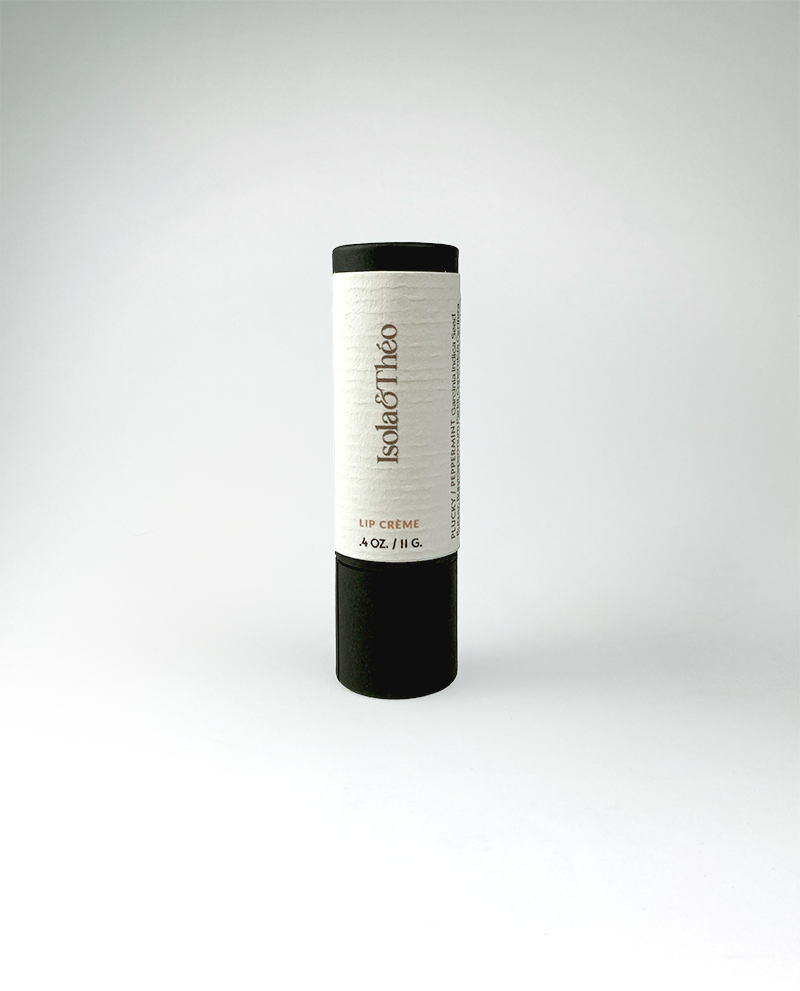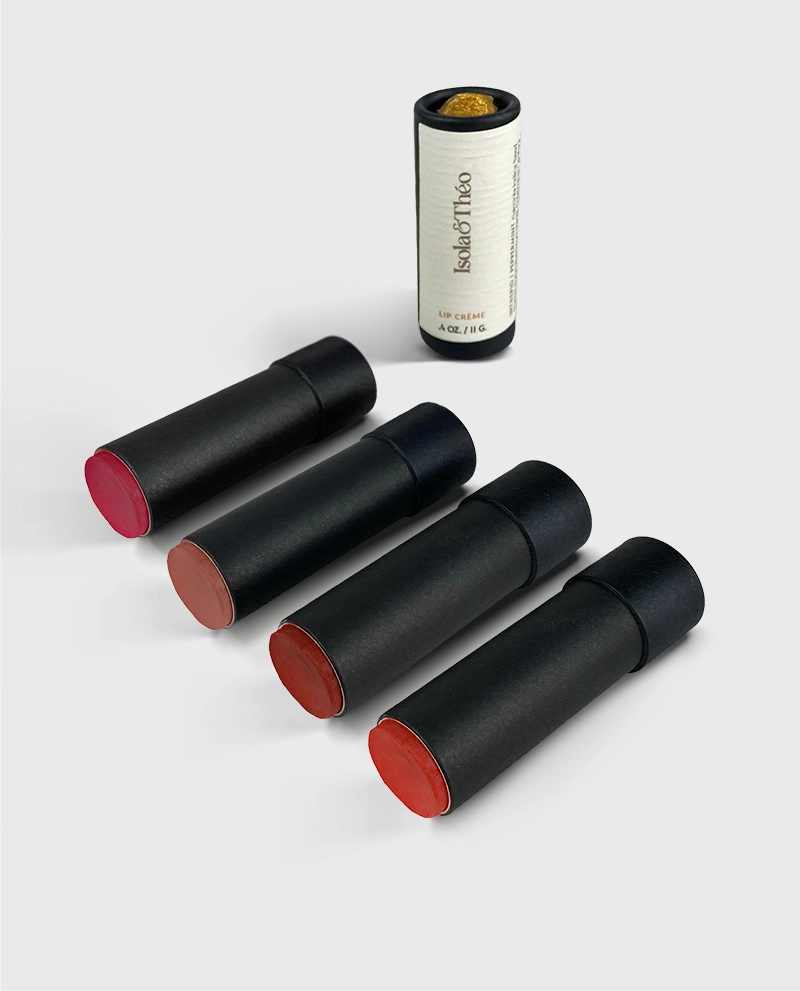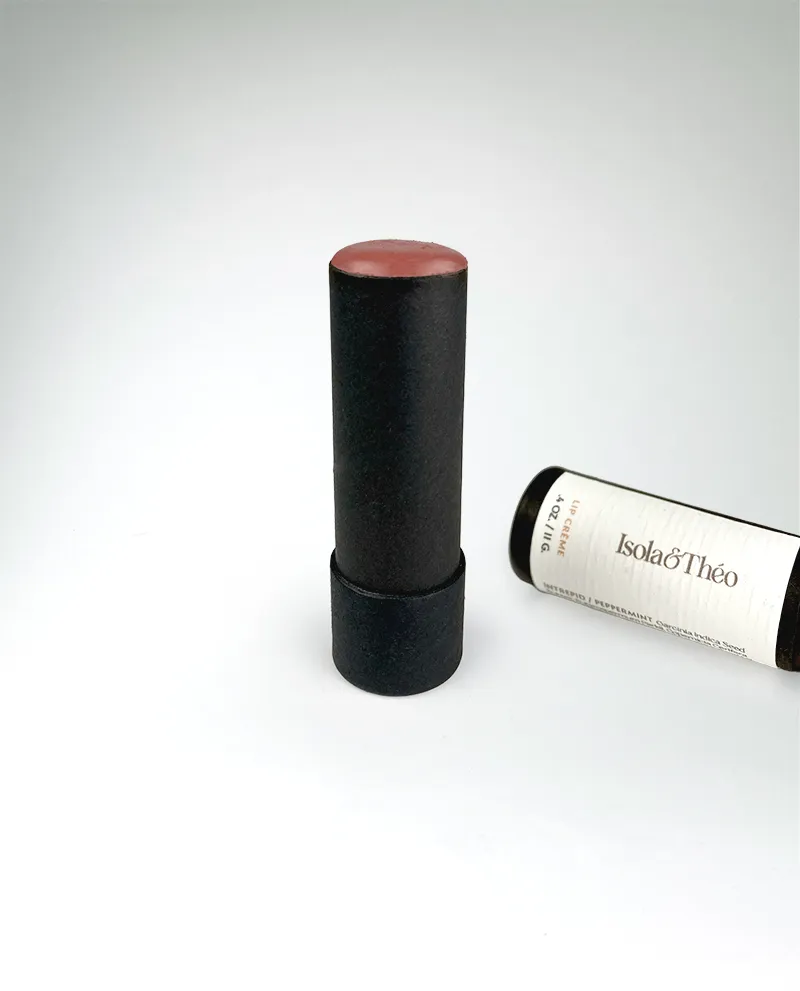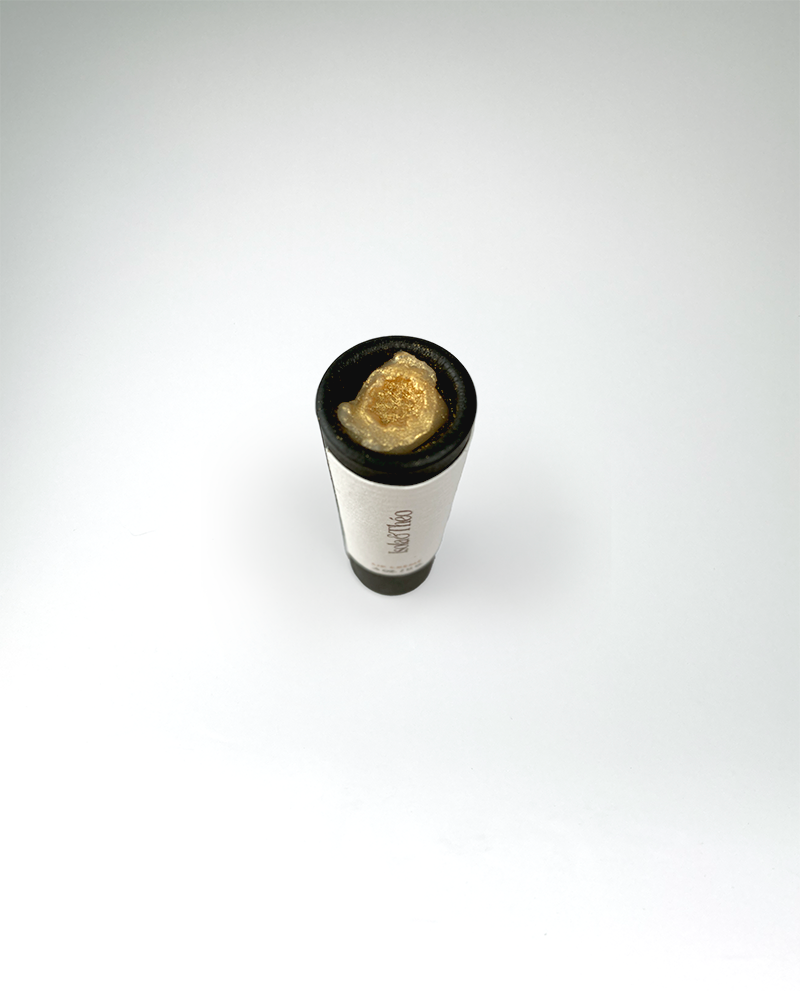Lip Crème
$22.00
Creamy, conditioning and a color punch right in the kisser. Luxe microspheres, micas and natural pigments deliver with show-stopping effect. Deeply nourishing cupuaçu butter smooths and conditions our most delicate skin. Hyaluronic acid binds moisture and delivers to skin for plumper, smoother lips. With an added boost of peppermint essential oil to soothe irritation, skin is left soft and hydrated.
Lush. Luxe. Love.
The ultimate conditioning lip color.
This conditioning, creamy formula has a matte like finish that smooths and fills, feeling comfortable and simply divine even after the color wears off. A healthier alternative to all-day lipstick that’s filled to the brim with plasticizers, our modern and highly emollient lipstick resembles more of original cosmetics, but with more beneficial skin ingredients.
Luxury meets sustainability in a sleek compostable vessel.
Formulation
The primary focus of our richly pigmented lipstick is conditioning skin while providing dramatic color. Nutrient rich and antioxidant Cupuaçu has a balanced composition of saturated and unsaturated fatty acids (essential for skin health), that is solid at room temperature and melts and warms on contact with skin to absorb quickly. Camellia seed and meadowfoam seed oils soften skin and provide a light finish that doesn’t feel distracting, but very natural. Jojoba and premium beeswax, and triglycerides (upcycled from the production of olives) lend humectant and conditioning properties.
With a conscious decision to choose only safe, natural products, we can not compete (nor would we try) with petroleum-based chemicals that promise all day color that we ultimately ingest or absorb in our bloodstream. Our core philosophy is creating healthy products, doing right by our planet and choosing products that benefit the people that grow these wonderful ingredients. The trade off of multiple applications only benefits your pout with more attention to moisture.
The argument for bees and beeswax is the argument for supporting our pollinators and the subsequent food chain. Honey bees (while not native), are the poster child for all pollinators because of the research and embrace of their colonies. The truth is, without bees (and we’re very partial to the native bees we have in Satis Garden), we would not have food. Full stop. Supporting small businesses that care about their bees and harvest humanely as ours do, does far more to promote the cause than striking them entirely. This keeps an interest and pushes for research for all our pollinators which are in decline. Reducing pesticides, supporting initiatives like Homegrown National Park supporting native, keystone species and buying only what you need are great ways to do more on a small level.
The ingredient C10-18 Triglycerides is an upcycled ingredient from inedible portions leftover from processing olives, contributing to skin smoothing agents in palmitic acids and in stearic acid, which helps retain moisture and form a barrier on our skin.
Carmine derives from cochineal, a scale insect. This strong colorant is unparallelled and is one of the only safe pigment dyes for lips that won’t feel gritty. Your lips feel everything, right? Cochineal are predators, invasive and effectively kill prickly pear cactus plants that many indigenous groups rely on for food and their livelihood. For centuries cochineal has been collected from prickly pears and is used to dye food, fibers and cosmetics.
A plant with many names, cupuaçu is a shining example of the Amazonian food culture. It is also a success story from the result of activism and agroforestry land restoration in revitalizing the understory in the richest biodiversity on the planet. Disturbed and fatigued areas of the forest floor are suitable for cupuaçu as it thrives in shaded areas. The fruits are harvested by hand and left to ripen in the sun. Processing unrefined cupuaçu butter undergoes cold pressing by mechanization which maintains the highly nutritious aspects of this wonderful plant such as the phytosterols and polyphenols that help and protect dry and damaged skin.
<Jojoba is ubiquitous in everything from skin to haircare and is an extremely sustainable plant. We will be sourcing from a US supplier growing in Arizona on marginal land with hydroelectricity. Native to North America in the Sonoran Desert, it is a drought tolerant shrub that requires little water. As a desert plant, once established it can rely on very little rainfall.Meadowfoam seed oil is highly resistant to heat and oxidative stress (leading to a long shelf life) due to its long chain of fatty acids, making this aspect quite sustainable. A native plant to the west coast of North America, it grows easily without much intervention and requires no fertilizers or herbicides, and while it grows wild it does not need to grow in it’s native locations. After cold processing, the seeds and plants used in this process are used for animal feed. It replaced sperm whale oil in the 1970’s, and while they are still listed as endangered and their numbers are increasing this shows the importance in intervening with important replacements.



